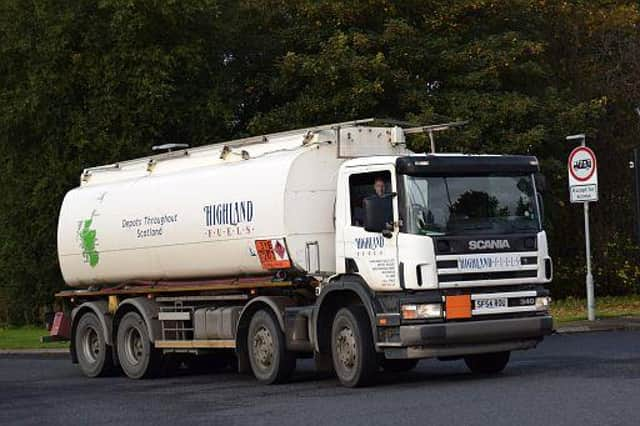Potential solution for heating island homes


Inverness-based Highland Fuels are currently involved in an industry pilot to fully evaluate the potential of Hydrotreated Vegetable Oil which can be used in existing tanks and boiler systems with minimum disruption. It is estimated the transition will only cost consumers £500.
This is a far more attractive proposition than switching to expensive electric heat pumps which are seen as unsuitable in cold, exposed areas and particularly so for older homes, such as croft houses.
Advertisement
Advertisement
However, the problem with HVO, as things stand, is that it is at the moment much more expensive to buy so the industry is calling for the introduction of a Renewable Liquid Heating Fuel Obligation, similar to what is already in place for road transportation, and which would severely reduce its market price.
Speaking to the Gazette, Highland Fuels managing director Stephen Rhodes said: “While the upfront cost of the HVO solution is very compelling the cost of the fuel itself is currently significantly more than kerosene and we see this as a barrier to consumer participation.
“In addition, and counter intuitively, HVO is presently penalised in the UK tax system. While there is an argument that these fuels should be taxed lower than their fossil fuel counterparts the reality in transport is they are taxed the same but when HVO is used in a heating application (i.e. boiler) it is presently taxed more than the fossil fuel. We have asked the Chancellor to address this inequality of treatment in his spring Budget.”
The issue was raised in the Scottish Parliament by Highlands and Islands Labour MSP Rhoda Grant when she asked Richard Lochhead, minister for Small Business, Innovation, Tourism and Trade (Richard Lochhead, “what discussions it has had with its enterprise agencies regarding how to support innovation by small businesses, including in relation to the use of alternative fuels such as hydrotreated vegetable oil”.
Advertisement
Advertisement
He replied: “Biofuels such as bio liquefied petroleum gas—biopropane—or hydrotreated vegetable oil, known as HVO, might be able to provide a low-carbon solution to heating off-gas-grid homes and businesses, but further evidence is required on the sustainability and costs of those fuels.
“It is important that we speak to local companies such as Highland Fuels that are interested in taking that forward.”
Mr Rhodes said he was encouraged by the exchange in parliament and added: “We would welcome the support of the Scottish Government to publicly acknowledge that renewable fuels have a real role to play in off-grid rural heating and to put in place measures within the Scottish Government’s forthcoming Heat in Buildings legislation.
We would also welcome the Scottish Government’s support to ensure that the Westminster Government delivers on its promises within the Energy Act 2023, , given the extensive benefits that this would have for rural households in Scotland.
Advertisement
Advertisement
“Delivering on these reforms would meet the Scottish Government’s decarbonisation ambitions but also wider carbon budgets with a significant amount of consumer support.”
There are around 130,000 homes in Scotland that currently use heating oil (kerosene) as the main source of heating and they tend to be in the more rural areas that are off the mains gas system. A high percentage of island households are on oil-fired boilers.